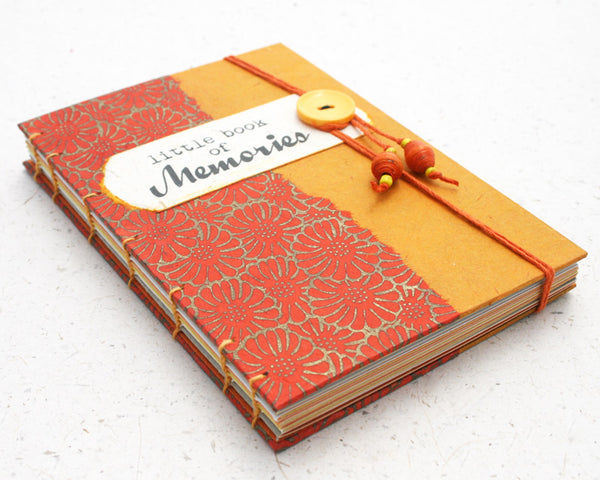I've kept a journal since I was 15 years old. I have a box full of notebooks of all kinds, filled with stories of my life - what I was doing, how I was feeling, my hopes and dreams, my anguish and despair.
Sometimes I would write pages every day. Other times, months would pass without me writing a single word. But inevitably, my journal would call me back. Somehow, I never felt quite right if I abandoned it for too long.
I've always found writing to be not only a means of emotional release, but also a way to organise my thoughts and declutter my mind.
I'm not alone of course. Many people keep a journal, including some of the most notable people in history - Leonardo da Vinci, Mark Twain, Benjamin Franklin, and Anne Frank to name just a few.
Folks have been drawn to journaling for centuries, and for good reason. More and more, research is indicating that there are many benefits of keeping a journal, both physical and psychological.
If you don't already keep a journal, here are 10 reasons why you should think about starting one:

1. Preserves important memories and events in your life
Life goes by pretty fast and it's easy to forget all those special little moments that happen in a lifetime.
You don't need to be a creative genius like Leonardo da Vinci to have a life worth documenting. Everyone's life is unique, and even the most seemingly mundane things may be of interest to future generations.
Even if you don't intend for your journals to be seen by others, your experiences and the events in your life are worth recording and preserving for YOU. Every now and then I like to go back and look through my box of journals and read some of those stories. It reminds me of the things I have experienced and how I came to be the person I am today. And sometimes, if I am struggling to recall the details of an event, I need only refer to my journal to remember it again.
2. Reduces stress and provides emotional release
Many studies have shown that journaling about stressful or traumatic events can be very beneficial, and the practice is often used as a therapeutic tool. Journaling about past experiences allows you to recall events and process emotions. Writing about things that upset you or things you're anxious about can be quite cathartic and help to release pent-up emotions, instead of ruminating over them and feeling stressed.

3. Declutters the mind
Getting your thoughts down on paper helps to avoid the brain getting stuck in a mental loop, where you are constantly thinking about an idea or something that happened, and helps free up your mind to focus on other things. Writing can also help you organise your thoughts, brainstorm ideas and see things more clearly.
4. Improves memory
The act of recalling events and writing them down helps the brain to focus on that information and reinforces the neural pathways and connections involved in storing it. This makes the information easier to access and remember later.
5. Promotes mindfulness and increases self-awareness
Writing about events in your life and how they affect you helps to increase your awareness of your thoughts and beliefs, and to see patterns in your mood and behaviours. You get a sense of how and why you respond to different situations the way you do. You can look back to see how you have changed over time, or perhaps identify things that you want to change.

6. Increases empathy and connection with others
When you develop a greater understanding and awareness of your own emotions and behaviours, you start to develop a greater understanding of others as well. This improves empathy and enables you to have deeper, more meaningful connections with other people. This leads to less interpersonal conflict, and better relationships.
7. Helps to foster a positive outlook and boosts self-confidence
If you keep a gratitude journal or regularly write about the good stuff that happens in your day, you train your brain to focus more on the positive things and this leads to a more positive attitude generally, and a greater sense of happiness and wellbeing.
Journalling about your successes and the things you have achieved, no matter how small, is also a great confidence booster and can help keep you motivated.

8. Increases likelihood of achieving goals
The act of writing your goals signals to the brain that they are important, and it is therefore more likely to remain focussed on them and seek out more ways of achieving them.
9. Improves physical health
Studies have shown that regular journaling can actually result in positive physical changes, such as reduced blood pressure and improved immune system function, most likely associated with its stress-reducing effects.
10. Improves self-discipline
To maximise the benefits of keeping a journal, it must be done regularly. It can take some time for the practice to become a habit, and some self-discipline is required to maintain consistency. It is often the case, that establishing one good habit, spills over into other aspects of your life, and it becomes easier to make other changes and form new habits in other areas.
So there you have it - 10 benefits of keeping a journal and 10 good reasons to consider giving it a go yourself.


